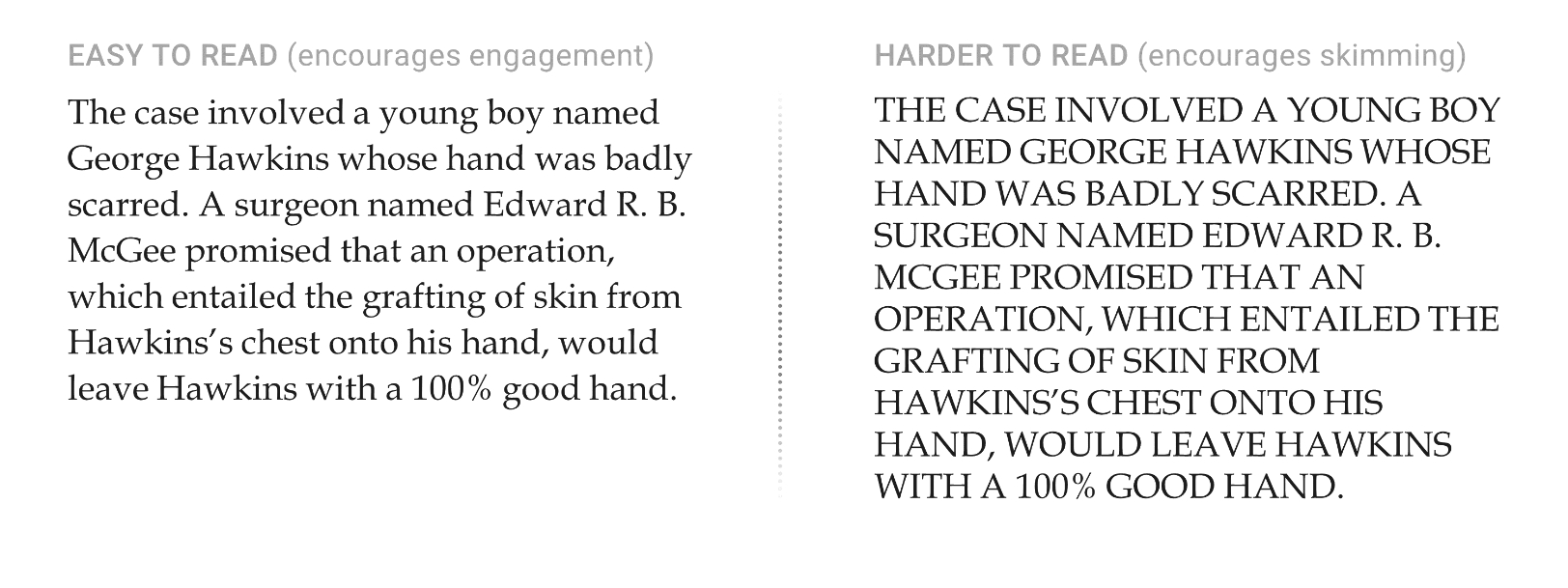Use Caution Using All-Caps
By Kara Lyon and Michael Grossklaus
When you want to emphasize text on your PowerPoint slides, do you reach for the Caps Lock key? A few words in all-caps can be effective, but if you overdo it, you risk three unintended consequences.
1. Compromised Legibility
Cognitive research suggests that the varied visual contour of lowercase letters helps our brain recognize words. The bumps and indents along the top of the characters are particularly important. In the example below, we’ve removed the top halves of the letters. The result is a straight visual line across the sentence, making it difficult to decipher.

When we cover the bottom half of the same letters—leaving the top bumps and indents intact—the words become legible.

Capitalization decreases legibility by reducing the variety of letter shapes—especially on the all-important bumpy top line, turning the varied visual contour into a simple rectangle.

2. Reduced Engagement
The last thing you want readers to do is skim quickly over an important bullet point or text block. But that’s what often happens with capitalized text. Instead of emphasising the material, text in all-caps will end up getting less attention than other text on your slide.

3. Being Seen as Aggressive
As Steve Krug points out in Don't Make Me Think, Revisited, viewers have a limited reservoir of goodwill, and that goodwill can be depleted by almost anything. In our digital age, all-caps is the equivalent of shouting. Shouting a word here and there to make your point will probably be acceptable to your audience. But shouting every slide title, or sentence after sentence in a text block, will quickly irritate your viewer.

In his wonderful book Typography for Lawyers, Matthew Butterick reminds us that we have better ways to emphasize a text block. “Use rules and borders. Add a heading that labels it Important. Run it in a larger point size. But don’t capitalize it.” He explains that all-caps text “is best used sparingly,” for short sentences, headings, captions, or other labels.
WE AGREE.
Sample text from Hawkins v. McGee, 84 N.H. 114, 146 A. 641 (1929).
